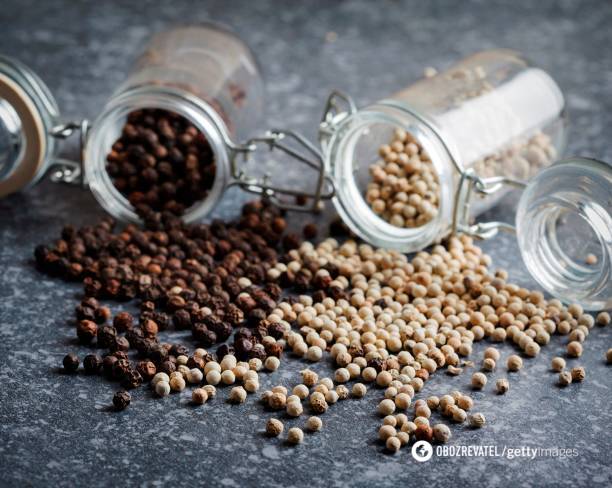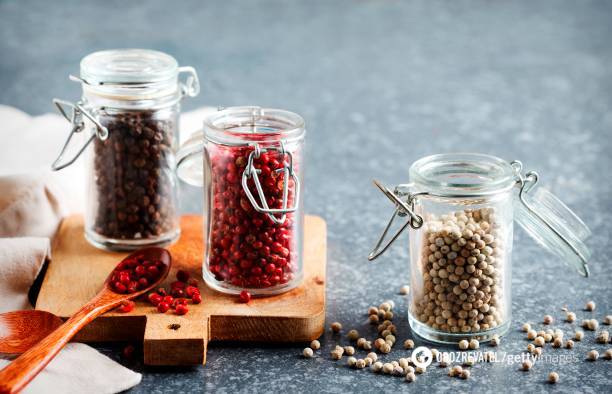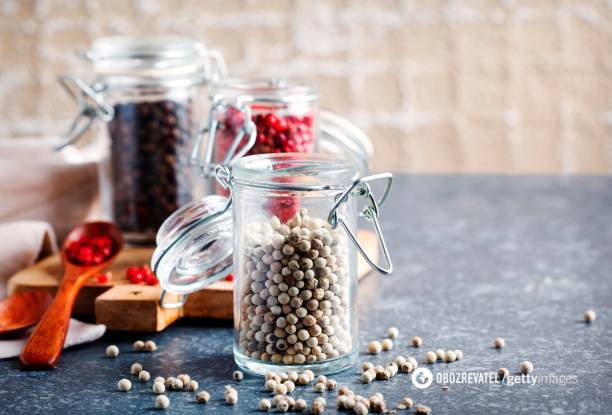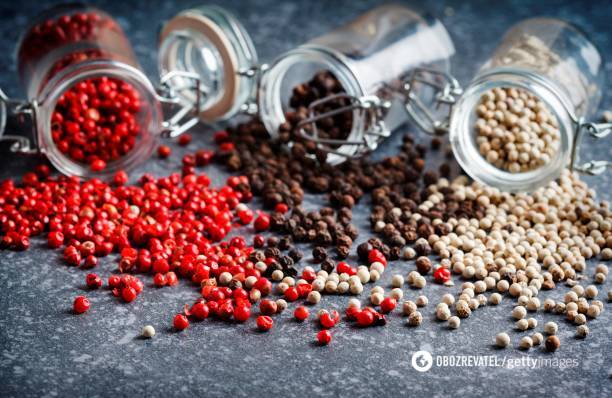LS Food
Hot black pepper: why nutritionists advise it and who will have to forget about it
Adding black pepper to your diet can have both positive and negative effects on your overall health.
Nutritionist Serhii Antoniuk wrote about this on his Facebook page.
The bitter-burning taste and strong aroma of pepper depends on essential oils, which are present in up to 2%, and the alkaloid piperine, which contains up to 9%.
"Piperine, contained in pepper, irritates thermoreceptors, which causes vasodilation and blood flow while raising the temperature. This is positive for weight loss. It should be noted that pepper improves the taste of food, but does not provoke overeating. The local irritant effect of peppercorns is successfully used by many people in the process of weaning themselves off salt abuse," the nutritionist said.
Piperine has immunomodulatory properties and has a bactericidal effect, which serves as protection against pathogenic microorganisms. According to the nutritionist, these properties make it reasonable to consume pepper along with 40-80 ml of vodka for those who have a cold or are in a country with a dubious microbiological status of food.
According to the doctor, only those who have no individual contraindications can use this recipe. The mechanism of action of such a cocktail is based on the bactericidal effect of ethyl alcohol and piperine. Given that piperine quickly dilates blood vessels, alcohol absorption will also accelerate.
"When using various drugs and eating pepper, especially for those who like to pepper, it should be understood that the rate of absorption into the bloodstream and, accordingly, the onset of action will definitely increase. Piperine improves the secretory function of the stomach, stimulating the production of hydrochloric acid, which is useful for gastritis with low acidity," the doctor noted.
However, according to Antoniuk, one should be especially careful when eating pepper in case of gastrointestinal pathology, when there is increased acidity in the stomach, at the height of inflammatory processes in the oral mucosa and throughout the gastrointestinal tract. "It is not suitable for breastfeeding, as well as for small children due to the vulnerability of the mucous membrane. It is advisable to minimize pepper consumption during pregnancy," the nutritionist emphasized.
In addition to the above properties, black pepper is also rich in vitamins B5, B6, K.
100 g of pepper contains the following in relation to the daily value: potassium – 53%, calcium – 44%, magnesium – 42%, iron – 54%, manganese – 637%, and copper – 133%. According to the nutritionist, pepper is undoubtedly a healthy food product in terms of its nutritional value, but it requires moderation in consumption.































